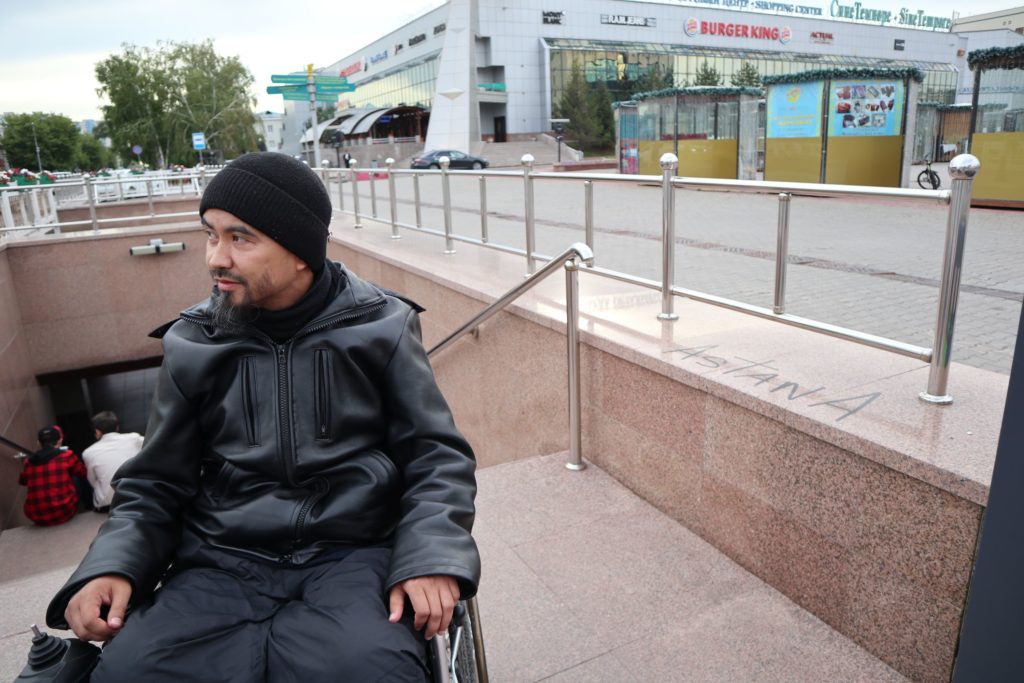NUR-SULTAN – Kazakh activist Zhaslan Suleimenov launched the Equal Access project last year to improve accessibility to the nation’s public spaces. The operation received a four-month, $6,000 grant in June from the United States Agency for International Development (USAID) Central Asia Media Programme.
The main goal is to draw public attention to the problems faced by people with limited mobility, including those with disabilities, elders and parents with strollers, said Suleimenov in an exclusive interview for this story. For individuals with vision or hearing impairment, special facilities such as tactile tracks and sound alerts should be installed.
In 2015, Kazakhstan ratified the United Nations Convention on the Rights of Persons with Disabilities. Article 20 states government bodies should ensure their personal mobility, he noted.
The grant supported the effort, which he started several years ago. The funds allowed him to brand the project, buy basic camera equipment and increase video content quality by hiring designers and video editors. Although the project ended in September, Suleimenov has continued to create videos promoting the interests of people with limited mobility and improve accessibility to public spaces.
“We started at the city level, then reached the national level, now the USAID. The U.S. Embassy in Kazakhstan published (a story about the project) – this is already at an international level,” he said.
Suleimenov uses social networking as the most important tool for conveying the message. A YouTube channel and Instagram account promote his activities and raise awareness about problems.
“Initially, the main platform was my accounts in social networks – YouTube, Instagram – where there are old videos, too. At the time of the project, an additional account on Instagram @zaravniydostup was created,” he said.
As a result of the project, the capital’s city administration mandated constructing a new ramp meeting international standards. The national railway company Kazakhstan Temir Zholy and transport enterprise Astana LRT accepted recommendations to increase public space accessibility, including implementing mobility skills training for staff members.
“I am satisfied with the results, but we do not stop there. We need to look for new ways, solutions, new ideas,” he said.
Suleimenov is working to increase his educational potential and qualifications by taking various trainings and seminars. He is currently studying through the online media school Medianet, Soros Foundation-Kazakhstan Human Rights Programme and Academy of Public Administration.


